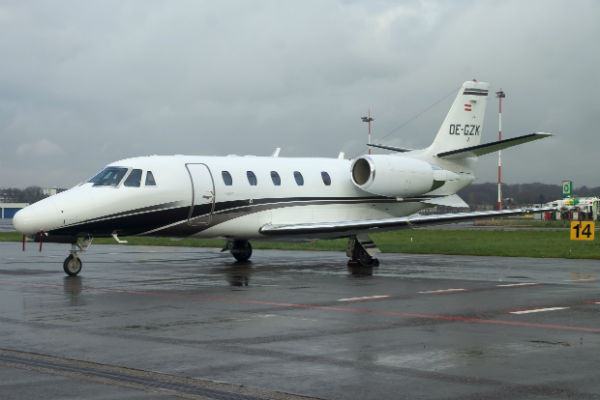10 reasons not to buy a private jet

International Jet Management Cessna Citation XLS
There are many reasons why you may want to buy a business jet. Owning one could be great for your business or personal life, but as with all major decisions, there are significant risks.
We asked brokers and aircraft manufacturer salespeople to list the statements that most worry them when they are talking with from potential buyers.
As always, we would advise buyers to hire a specialist acquisition consultant or an aircraft broker to advise them on every aircraft purchase (along with a business jet lawyer). If you have found yourself saying one of the following statements they could definitely help you to decide whether you could really benefit from a buying a business jet.
1. “My friend/neighbour/rival company has one.”
Many people buy a business jet because they have been introduced to the benefits of business aviation by their peers. This is one reason that some regions often end up being dominated by particular aircraft types as everyone recommends the same aircraft.
But unless your travel needs are exactly the same as your neighbour’s it is worth looking at what particular aircraft makes sense for you. To do this you need to analyse how you want to use an aircraft and then consider what options are available to you.
A good adviser or broker that can identify your typical missions can save you thousands (or even millions). Many first time buyers buy aircraft with range that they never use. If 95 per cent of your flights take less than three hours it may make more financial sense to buy a aircraft designed for this mission and then use charter, a charter card or fractional ownership for longer flights.
Conversely, some businesses find that the time saving that a jet gives them means that their geographical market is far larger than they realised, so they need more range than they originally thought.
There are more than 50 different brand new aircraft available from manufacturers and many others in the pre-owned market and at least one of these will suit your needs.
2. “They are a great investment.”
A few people have made a lot of money investing in business jets. A lot have lost money.
Private jets are depreciating assets and will lose value. Over time jet values will always fall even if they do not depreciate in a straight line.
When there is strong demand for aircraft (such as in 2007 and early 2008), you may be able to make money selling your aircraft – or your delivery slot – but business aviation is extremely cyclical. Speculators lost a lot of money (and non-refundable deposits) after 2008. However, markets can change quickly. New types may trade at a premium for a few years but then suddenly drop.
3. “I can make money chartering it out.”
You cannot turn a profit and still use the aircraft yourself, although you may be able to make a contribution to the operating costs.
Some owners also feel that the depreciation caused by high utilisation also off-sets any benefit.
As charter is is a cyclical market you should also be cautious when aircraft managers say they can guarantee charter.
4. “I have always wanted to run an airline.”
That is great but owning a few jets is not the same as running an airline. And remember that most airlines lose money.
5. “It works out cheaper than flying first class or business class.”
Sorry, it doesn’t. There are many advantages of flying in a business jet, so it makes sense that it costs a little more.
6. “I have just got a once in the lifetime bonus.”
Congratulations. But please make sure you have the money that you need to maintain and operate your aircraft. Owning a business jet is expensive and some buyers fail to budget for all of the operating costs. Many buyers of jets in the boom markets leading up until 2008 were then forced to sell in 2009 – and found their aircraft had also fallen in value.
7. “We are planning to travel a lot next year.”
This is great but unless you already fly a lot by business jet it may be worth experimenting with chartering an aircraft or perhaps fractional jet ownership to find out how much you really need an aircraft.
As a general rule, if you fly less than 250 hours (or even 300 hours), whole ownership of an aircraft does not make financial sense – although you may still want to buy one for other reasons.
8. “I love the colour/interior.”
Painting a refurbishing a jet is relatively inexpensive compared to other issues. Everyone bases their purchases on looks, but it is important not to let this sway you or hurry the process to much. You can always repaint an aircraft and issues like maintenance or corrosion can cost you much more.
9. “The pilot/seller/ broker says we don’t need to worry about the aircraft’s condition or maintenance; it’s already perfect.”
No aircraft is perfect. You are buying the aircraft in the condition it is in now. Once you buy an aircraft you are responsible for any maintenance that it needs from now on. You need to know exactly what state it is in before you buy it. A new interior or great paintwork could be hiding very expensive issues.
10. “This deal is just too good to be true. I would be stupid not to buy it.”
As the saying goes, if it is too good to be true, it probably is. The pre-owned aircraft market is unregulated and, as with any industry, there are crooks operating in it. This is another reason why professional advice is so valuable.








